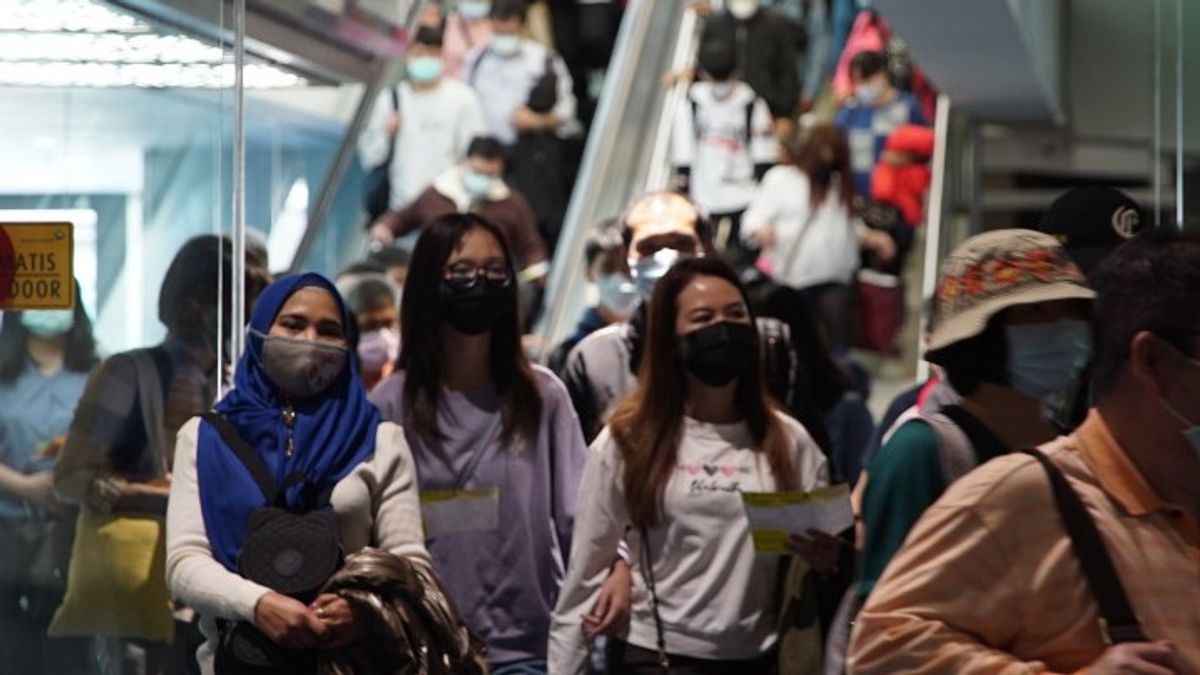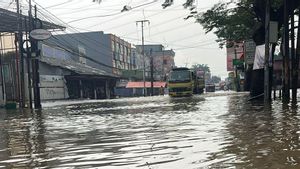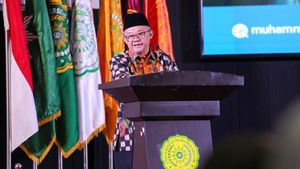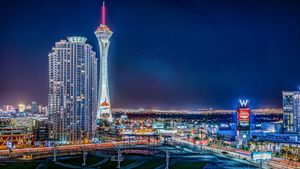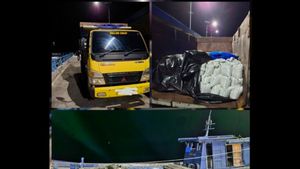JAKARTA - The transitional PSBB period takes effect in Jakarta starting today. DKI Jakarta Governor Anies Baswedan said there was one key to implementing the transitional PSBB volume II which was valid until October 25.
The key in question is the recording of the identity of visitors at the location of activities that are visited by many people, such as offices, entertainment venues, restaurants, museums, and places of worship.
Identity recording referred to is the time of arrival, time of return, full name, telephone number and the first 6 digits of the KTP number.
"The purpose of this recording is for us to carry out contact tracing. If there is a positive case, then we can trace where he has been carrying out activities during the last 2 weeks," Anies told reporters, Sunday, October 11.
In general, the policies during the transitional PSBB volume II period were the same as the first transitional PSBB. However, there are some adjustments. The following are provisions for activities that are obligatory, permitted, and prohibited during the PSBB transition volume II.
Offices
Offices in the essential sector can operate at a capacity as needed, while offices in the nonessential sector operate with a maximum of 50 percent capacity.
Then, offices make adjustments to working hours and work shifts with a minimum break of 3 hours between shifts, and maximize the use of technology.
Then, if a COVID-19 cluster is found, the office is obliged to close the workplace for 3 x 24 hours for disinfection.
Restaurant, restaurant or cafe
Restaurants, restaurants or cafes have been permitted to serve dine-in again. Customer capacity is limited to 50 percent, the distance between tables and chairs is at least 1.5 meters, except for customers with 1 domicile.
In addition, visitors are prohibited from moving around or passing by, then the eating and drinking utensils are regularly sterilized. Servants are required to wear a mask, face shield and gloves.
Live music performances are allowed. However, visitors are required to sit on spaced chairs, not standing or on the floor, and not causing a crowd.
The restaurant operational time limit is allowed from 06.00 WIB to 21.00 WIB. Meanwhile, take away and delivery orders are allowed for 24 hours.
Worship place
Places of worship are opened for worship activities with a capacity of 50 percent. Especially for places of religious worship, visitors must record visitors, either by means of a guest book or with a technology system. In addition, the place of worship that is used for marriage refers to the provisions regarding the marriage facility.
Entertainment and outdoor sports (outdoor)
All outdoor entertainment venues ( outdoor ) or recreation areas are again allowed to operate with a maximum of 25 percent capacity. Mandatory ticket purchases online, age restrictions for visitors, and restrictions on the number of visitors to rides.
Then, sports facilities in open spaces such as golf and tennis courts are filled to a maximum of 50 percent capacity, without the presence of spectators, and regulate the movement of people in the arena with a distance of 2 meters.
Water tourism, such as swimming pools, which was previously banned, has now been allowed to reopen. The stipulation is that a maximum of 25 percent capacity is limited to maintaining a minimum distance of 2 meters for each activity.
[/ read_more]
Entertainment and sports venues in the room ( indoor )
A number of indoor activities that were previously banned, such as cinemas, seminars and wedding ceremonies have been allowed to operate.
The provisions are a maximum limitation of 25 percent of capacity, distance between seats of at least 1.5 meters, prohibition of changing seats, prohibited food service in the form of a buffet, and workers wearing personal protective equipment.
The fitness center or gym may also be operated again. The provisions are limiting 25 percent capacity, distance between people to 2 meters, regulating indoor air circulation, and group training only allowed outside.
Transportation
The provisions regarding restrictions on the transportation sector are not much different from the second PSBB period. In a car, a maximum of 2 people can be filled per line, unless filled with people who are in the same domicile.
Everyone riding and riding a vehicle is required to wear a mask. Then, restrictions on mass public transport are regulated by the Transportation Agency. Then, the odd-even is still eliminated.
Activities that have not been allowed to operate
For sectors where there is no specific regulation in the second transitional PSBB regulation, they can submit an application to the DKI Jakarta Provincial Government through the relevant agencies / agencies.
Until now, types of entertainment activities such as discotheques, nightclubs, spas, massage parlors, karaoke are still not allowed to operate. This is because this activity has a high risk of transmission because the participants are close together, experience close physical contact or are of high intensity.
[/ read_more]
The English, Chinese, Japanese, Arabic, and French versions are automatically generated by the AI. So there may still be inaccuracies in translating, please always see Indonesian as our main language. (system supported by DigitalSiber.id)
